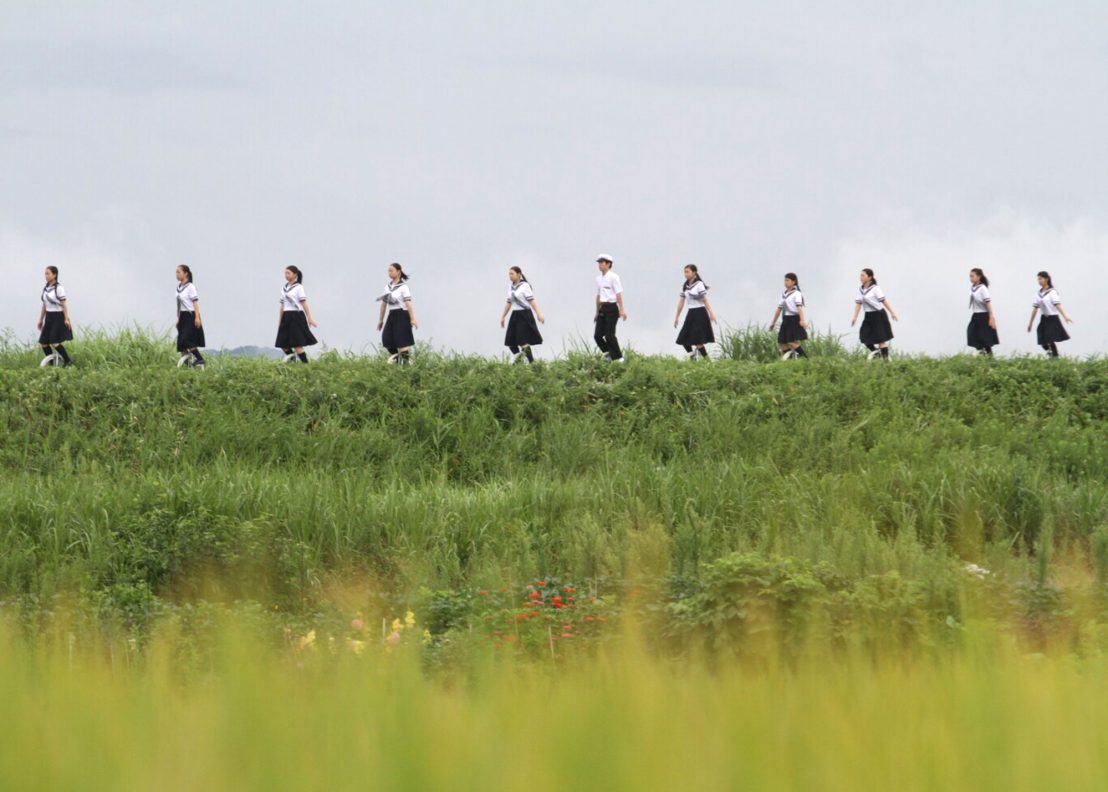
The last decade of Japanese cinema have been defined by the spectre of 3 March, 2011, when 20,000 people died and hundreds of thousands more lost their homes following a major earthquake and tsunami that hit the east coast of Japan. In an attempt to understand the disaster, various films have addressed the tragedy either directly or indirectly, from Hideaki Anno’s big-budget reinterpretation of an icon in Shin Godzilla, to the quieter exploration of grief in Ryûsuke Hamaguchi’s Haruki Murakami adaptation Drive My Car.
Nobuhiko Obayashi’s Anti-War Trilogy, a series of films created by the director best known for the cult horror Hausu, is similarly impossible to disassociate from the events of that day. To call it an anti-war trilogy may seem an odd choice considering the director has explicitly stated “I am not making anti-war films, I just do not like war”. Yet they exist as anti-war films because they attempt to remember the effects of war when its lessons are needed now more than ever.
The earthquake was a reset point for modern Japan, as political power shifted to the right amid anger at the government’s response to the disaster. Attempts to rebuild the immediate disaster area provoked a national debate on what a 21st-century Japan should even look like. Moving on from 3.11 required Japan to not only fix the damage caused by the earthquake but rebuild its national character, just as it had after the atomic bombings of Hiroshima and Nagasaki. It raised the question: what should Japan learn from past mistakes?
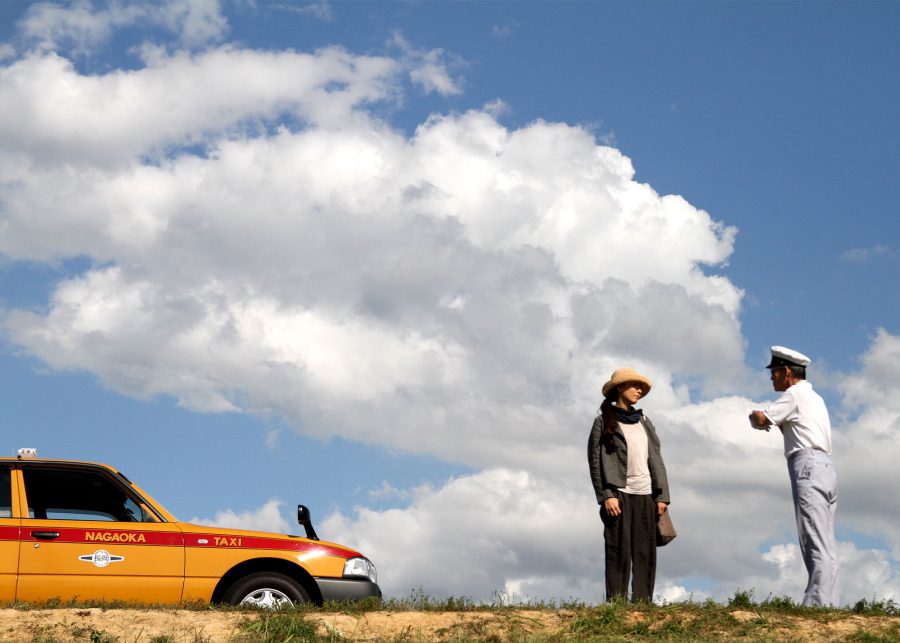
Starting in 2012 with Casting Blossoms to the Sky, released just one year after the events of 3.11, and continuing through 2014’s Seven Weeks and 2017’s Hanagatami, Obayashi’s Anti-War Trilogy explores the twin disasters of 3.11 and World War Two through tales of romance, war, joy and death, issuing a powerful rebuke to the possibility of embracing militancy over the desire for peace.
This is most apparent in Casting Blossoms to the Sky, which tells the dual stories of a journalist visiting Nagaoka for an article about the 3.11 disaster as she also watches a play performed by the students of her ex-partner about the voices lost amid the bombings of Japanese cities in World War Two.
It’s a decidedly more hopeful film than those that followed, depicting a younger generation that grew up in peace and craving that status quo while sharing the real stories of veterans of war and disaster from the area in a blend of fiction and documentary. Importantly, it compares the human atrocities of war with the indifference of power to act. Ultimately it is a story about generational trauma, the stories passed on, and an impassioned plea to come together as a nation to rebuild.
“These films are less about war, instead serving as lessons for how to fix a broken world.”
As time went on, the optimism of this film soon faded. The nation-building that took shape under the right-wing Liberal Democratic Party disregarded lessons of peace and camaraderie for an attempt to use their power to push for constitutional amendments that would codify a Japanese army for the first time since 1945. The idea of finding strength in adversity was appropriated for militant ideology, and controversy over rewriting history books to glorify acts of imperialism was reignited. The baton was being passed to a post-war generation that lacked lived experiences of war, and their lessons threatened to be forgotten.
Seven Weeks arose from this uncertainty as a grounded family drama set against the backdrop of the death of a family member. While Mitsuo grieves for her recently-departed grandfather, stories of his life during World War Tw0 and relics of his past come to life as memories that directly challenge the ignorance of war amongst the younger adults, some of whom directly debate the merits of changing the constitution. Far less dry than this synopsis suggests, Seven Weeks mourns the fading hope of a positive future through the lens of death.
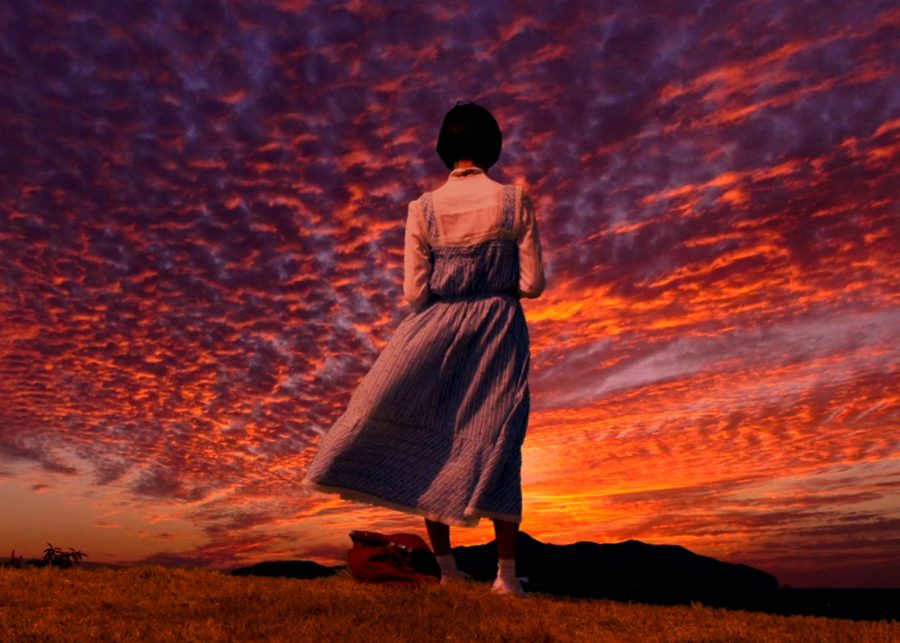
By the time Hanagatami was released, Obayashi had been diagnosed with terminal cancer (he would make one more film, the magnificent Labyrinth of Cinema, which acts as a coda to this trilogy, before passing away in 2020). If hope had been lost to grief in Seven Weeks, this grief has grown into anger at the failures of Japan to come together. The result is a cruel tale of a generation ripped apart by war as they sacrifice their youth and their lives to a government-mandated war, with clear comparisons made between the war generation and those forced to come of age amidst economic stagnation and the displacement of 3.11 survivors.
In spite of the anger that transformed it into what we see today, Hanagatami was also a passion project 40 years in the making, condensing the director’s philosophy and outlook into a decades-spanning magnum opus about life, death and war. Asking older actors to portray school children offers these characters maturity beyond their years, the faces of people whose childhood and youth were snatched away by war. The film is bookended by opening and closing monologues that bring the 1937 source material by Kazuo Dan and the 3.11 earthquake into the text of the film itself, directly questioning if the sacrifices made by the innocent for an uncaring elite were ever worth the cost.
In an interview with MUBI Notebook in 2017, Obayashi was blunt. “For those who experienced losing the war, 3.11 was a do-over… I thought we will learn to be compassionate and work together. I thought the Japanese will cast away nuclear power plants and will move to a better direction, but sadly the government doesn’t move that way. And the one reason is because without war, they can’t feed themselves.”
Obayashi’s Anti-War Trilogy is a blueprint. These films are less about war, instead serving as lessons for how to fix a broken world; viewing them solely as anti-war films ignores this. Division, distrust and despair fuel our eager willingness to believe fake news, anti-Covid conspiracies and take aim at our fellow people. If 3.11 was a lost opportunity, Covid is a second chance. However vanishing it feels, maybe there are lessons to be learned from our past.
Nobuhiko Obayashi’s Anti-War Trilogy is released on limited edition Blu-ray on 13 December via Third Window Films.
Published 13 Dec 2021
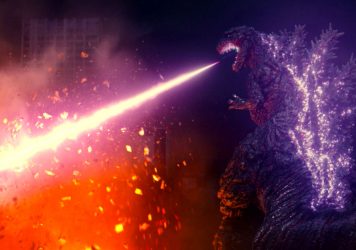
By Keno Katsuda
Like the original Godzilla, Anno Hideaki and Higuchi Shinji’s 2016 kaiju marked a turning point in Japan’s understanding of nuclear power.
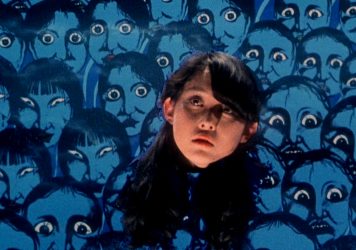
By Taryn McCabe
Forty years ago, directed Nobuhiko Obayashi created a totally unique art-house treasure.

Hausu director Nobuhiko Obayashi’s penultimate film, Hanagatami, is as surreal as it is moving.